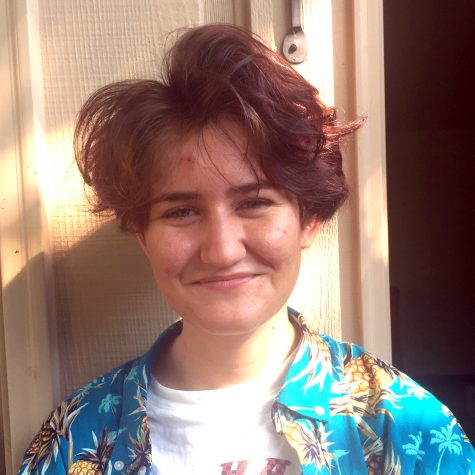Educate Yourself
Three Books to Read about Racism

The Black Lives Matter movement is extremely important, and it’s absolutely necessary to amplify. Black voices during this time instead of speaking over them. It’s important to be listening to actual Black people, versus just White allies. That being said, it’s also important to educate yourself; it’s not Black people’s responsibility to do it for you. That said, here are a couple of books that have helped me to be a better ally.
The first book I want to mention is The Fire Next Time by James Baldwin; as a rule of thumb, anything by Baldwin is very powerful and enlightening on the topic of race. The Fire Next Time contains two essays: the first a letter to Baldwin’s nephew and the second a recollection of his childhood. This book explains the way race is connected to religion, crime and the idea of the American Dream in this country. It provides insight into how the treatment of people based on race shaped the lives of many Black Americans today. I highly suggest this book as a way to help understand the way this country treats people of other races.
The next book is How to be an Antiracist by Ibram X. Kendi. This New York Times bestseller takes the stance that being “not racist” simply isn’t enough—being a passive bystander allows oppressive systems to exist and thrive. In the book, Kendi talks about internalized racism and how prominent racist ideas are. He explores how growing up in the U.S., we are taught racist ideas, even if only passively. Due to all of the internalized racism, people have to actively fight against their own prejudices. He explains the different types of racism and how they affect racist and anti-racist mindsets. Kendi switches between the use of personal anecdotes and factual examples of racism. Though some of his ideas are controversial, all are well-argued and interesting.
The final book on this list is White Fragility by Robin DiAngelo. It’s different from the others because it was written by a White person; the author gives a unique insight into how White people react to the subject of race. DiAngelo explains the difference between prejudice, which can be aimed at any person, and racism, which is institutional and wide-reaching; you can have a prejudice against white people, but you can’t be racist toward them. The author discusses how the nature of racism is adaptable—it’s constantly changing, so the way we fight it must change. She discusses the mindset among White liberals of “color blindness” in which they think the way to fight racism is to ignore race. Many of these people claim they don’t see race, so they’re not racist. DiAngelo explores how this mindset is harmful, stating in her book that “we can’t change what we refuse to see.” She explains how not seeing race is not seeing racism, though it is still extremely prominent and affects the day-to-day lives of many Black people. DiAngelo brings up the idea of White solidarity; how White people won’t confront each other’s racist tendencies, much less their own. In the pursuit of comfort, White people often remain silent or become defensive during conversations about race.
There’s a lot of information out there about the topic of race and while it’s extremely important to stay informed, it can be hard to know where to begin. Any one of these books is a good place to start and the different perspectives between them can be very enlightening in many ways.

Selah is a BHS senior who enjoys writing and wants to continue improving her skills by joining the OWL. She hopes to bring to light to important issues in and beyond the Boulder High community and share some of her many opinions. When she’s not doing work for her classes, Selah enjoys nature. She grows many plants, including purple grapes in her backyard, which she far prefers to the green ones. She spends a lot of time hiking, camping, and enjoying the Colorado mountains. Selah likes to read. She often reads fiction; however, philosophy and nonfiction are also her favorites. She is also a singer and piano player and has written several songs of her own and many in collaboration with her brother....


Ella Webber • Oct 2, 2020 at 2:04 pm
I also love Yaa Gyasi’s Homegoing and Transcendent Kingdom! For people who enjoyed Things Fall Apart, Homegoing is a great second read.